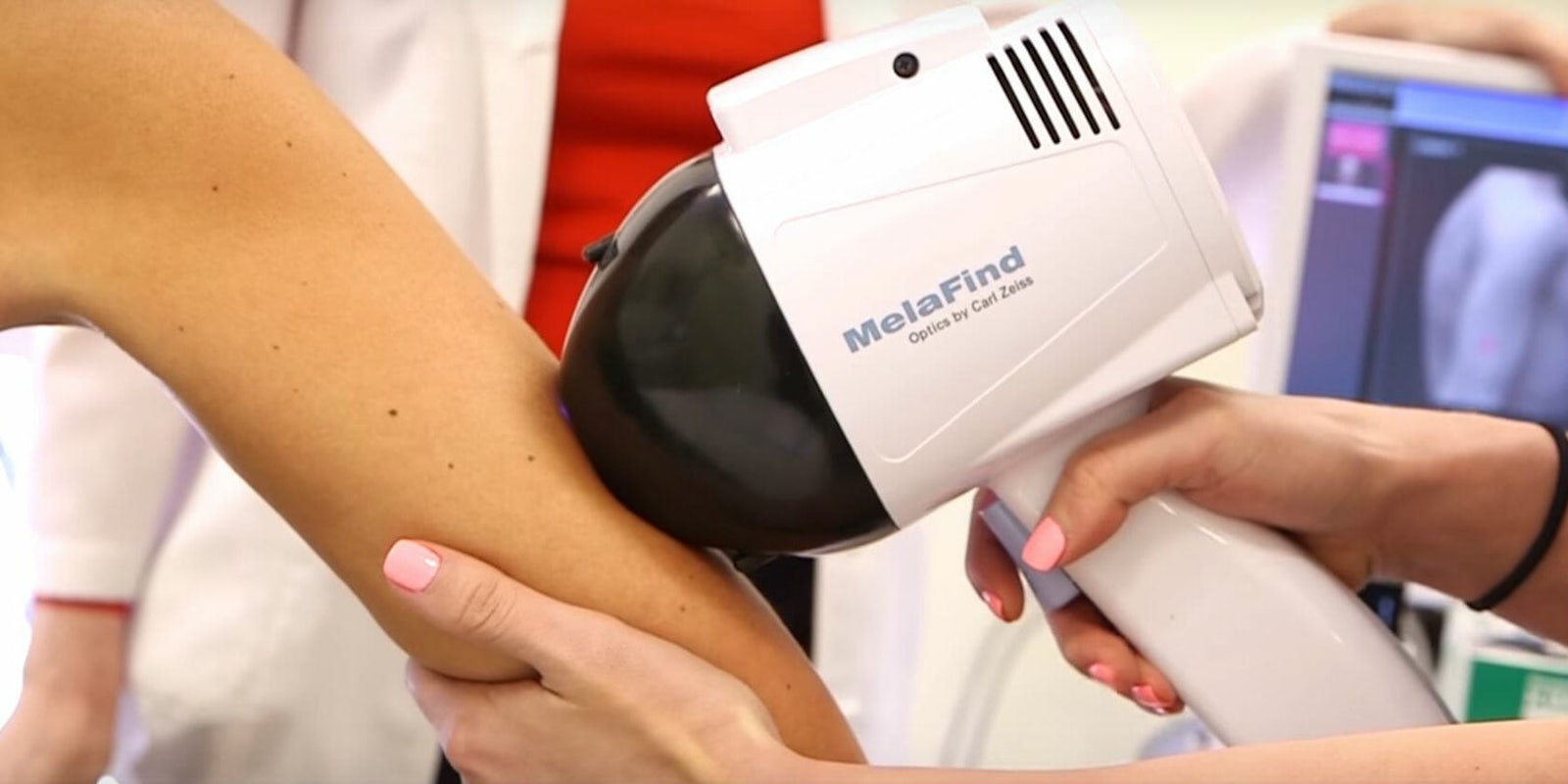Artificial intelligence has already shown its ability to outperform humans at various tasks from playing board games to scanning legal documents. Now researchers have determined that an AI is more capable of discovering skin cancers than seasoned doctors.
A team from Germany, the U.S., and France put a deep-learning convolutional neural network up against 58 dermatologists from 17 countries to see how accurately it could detect malignant skin lesions from benign ones. More than half of the doctors were considered “expert” level with more than five years of experience, 19 percent had between two and five years of experience, and 29 percent were beginners with less than two years.
When shown more than 100,000 images of melanomas and benign moles, the neural network outperformed the medical specialists, correctly identifying 95 percent of skin cancers compared to 86.6 percent for team human. It also misdiagnosed fewer benign moles as malignant, which could reduce unnecessary surgeries.
Holger Haenssle at the University of Heidelberg said the AI missed fewer melanomas, meaning it “had a higher sensitivity than the dermatologists.”
“These findings show that deep learning convolutional neural networks are capable of out-performing dermatologists, including extensively trained experts, in the task of detecting melanomas,” he said.
The dermatologists became more accurate as they were given additional information about patients. A doctor wouldn’t give a final diagnosis before collecting all the necessary background on someone. But even after gaining clinical information, the humans were less accurate than AI.
Diagnosing melanoma, the most dangerous type of skin cancer, can be a difficult task, even for a trained dermatologist since the symptoms aren’t always obvious. While cancer can be suspected from a suspicious mole, it typically requires a biopsy to make an official diagnosis. In a biopsy, doctors remove moles from the surface of the skin and analyze them under a microscope.
The researchers said AI could be used for faster, easier diagnosis of skin cancer. Like all cancers, melanoma is more likely to be cured if it’s discovered early, before it becomes metastatic, or spreads to other areas of the body. The rates of melanoma have increased for the past several decades, with more than 230,000 new cases and 55,000 deaths in the world each year.
The AI remains a long way from becoming a commercial product. The researchers brought up several shortcomings of the AI, like its inability to image melanomas on certain sites, like fingers, toes, and scalp, and the difficulty of training AI to recognize atypical cases. But as the technology continues to learn, and further tests are conducted, AI could one day be used as a home diagnostic tool so people can quickly get answers—before it’s too late.


